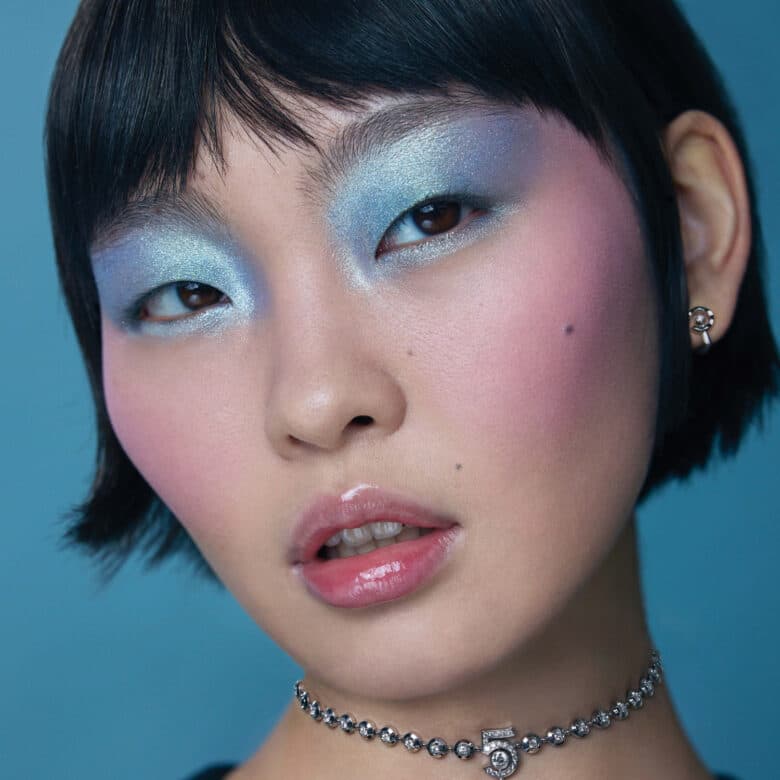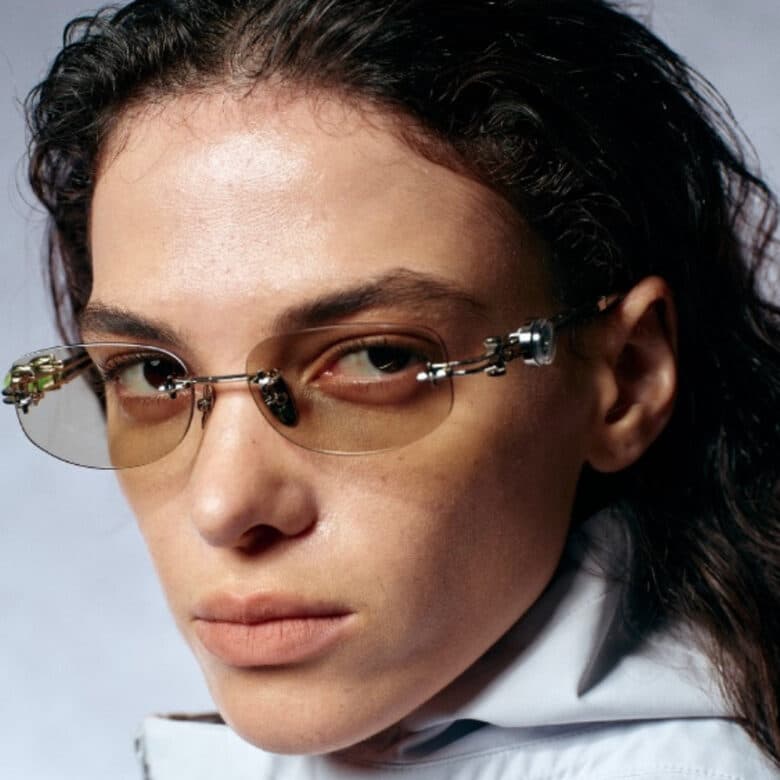Digital Cover: Mackenzie Davis

When Clea Duvall, the 90s heartthrob of But I’m A Cheerleader fame, announced she would be making a queer, Christmas rom-com, expectations among the representation-starved lesbian community immediately soared. Then when a veritable who’s who of LGBTQIA+ talent, from Kristen Stewart to Schitt’s Creek’s Dan Levy, signed on to bring Duvall’s vision to life, there was no doubt that the final product would deliver on the hype.
But if you’re expecting Happiest Season to be a bundle of sugary sweetness, you’ll be disappointed. Helming the cast is Mackenzie Davis – a queer icon in her own right for turns in Black Mirror and Terminator: Dark Fate – whose knack for difficult female roles doesn’t exactly lend itself to a cookie-cutter mould. In her role as Harper, Mackenzie takes the viewer beyond the fluffy veneer and into the much murkier subject matter of queer shame as her character’s unwillingness to come out to her family forces both her and her girlfriend Abby (Kristen Stewart) back into the closet for the holidays.
Harper’s misguided actions throughout the movie might have viewers, queer or straight, shouting at the screen in frustration but, as Mackenzie points out, it’s important not to shy away from her flaws. “I think with any underrepresented group it’s as harmful when you flatten their representation into something exclusively positive as it is into something negative,” Mackenzie says. “There are plenty of complicated protagonists in Hollywood that look like Don Draper, there’s room for some that don’t.”
We might not like to admit it, but many of us in the LGBTQIA+ community have felt the shame and fear that contribute to Harper’s behaviour – especially during the holiday season, where family missteps and strained relations can make it a particularly difficult time for queer folks. For Mackenzie, this is exactly what makes this seemingly light-hearted movie so impactful. “I hope if you came out years ago, or just recently, or you haven’t come out, or you live in between and don’t need or want to articulate what that state is, you feel kind of hugged or seen or warmed by our movie,” she explains. “That’s really all you want a Christmas movie to do.”
To celebrate Happiest Season’s release, Mackenzie and Kristen dive into an intimate conversation about their experience on set, working with Clea Duvall and making art in the apocalypse.

Kristen Stewart: Dude, didn’t we have the greatest time ever on Happiest Season?
Mackenzie Davis: I’ve never had more fun working with someone in my career. Being friends with someone and loving them and not having them think that you’re too much. It’s so nice to be at home somewhere.
K: I always justify bad experiences because I got through it and I think I was better because of it but really what I love is feeling visible and understood and loved and supported. It’s so nice to do work that feels natural, I felt so at ease with you and that comfort wasn’t boring.
M: I so relate to what you just said. Having hardship doesn’t really promote the best version of myself.
K: Imagine two guys having this conversation, it wouldn’t even cross their mind. It’s such a female reaction to strife to think, ‘I can make something out of this actually, I actually do some of my best work out of adversity.’ But actually, fuck that, that is not true. So, [the director of Happiest Season] Clea [Duvall] is great, don’t you think?
M: Clea is one of the greatest people I’ve met in my life, I think she is so talented. She kept us on course this whole movie when you and I wanted to turn it into an absolute drama-tragedy.
K: In interviews, you often end up talking about the result of the work you’ve put in but not the work that you did. It’s weird because you have to step completely outside of yourself to relate to other people and their perception but what about the experience that you’re having? Even when you get up in the morning for your work, how do you prepare for a big scene? Or are you better in the morning or at night?
M: Talking about [process] stresses me out because I have such anxiety about being a bad student and not doing the right stuff or not knowing the right way of doing things. With everything [I work on] I read a bit, procrastinate a lot, think a bit, write something and then where that goes, I have no idea…this garbage bag of dead-ends. When I talk about my [process] I think, ‘oh no, that’s such a mess and you don’t want to look at it and you’ll be so disappointed to learn what actually goes on.’

K: I don’t think that’s a wrong way of doing anything though. I’ve noticed that whenever anyone that I work with has hard and fast rules, even when they’re really talented and those rules prove to be productive and fruitful for them, I so can’t relate. But then I also feel like I’m a bad actor or that I’m not as diligent because I haven’t defined my process to a T.
M: I guess this is the weird psychosis of this job, that there is always the chance to start over and do the next one better but also the fear that you’ll never get another chance.
K: Also the desire to please never do it again but also the feeling that I want to do it for the rest of my life.
M: Yeah, I want to do it for the rest of my life but also could I please have a farm and I would actually love to be a housewife and chill.
K: You do make really good delicata squash, you’d be a great housewife.
M: I think in terms of process I learn so much of what and what not to do from people I work with. With you, I saw that you’re so good at advocating for yourself and defending your choices. I mean that in the most flattering way because I have this kind of Canadian thing mixed with just my natural personality of saying, ‘I wouldn’t do it that way’ and then ‘oh, you don’t like that? Let me shut up and I will not bother you anymore with my opinion because I’d rather we just moved on and had a nice day.’ I’m not saying you do the opposite of that and create a problem, but I really learned from watching you and will take it in the future.
K: So, do you have any other projects coming up?
M: Yes, Station Eleven. It’s set twenty years in the future after an apocalyptic pandemic wiped out 99.9 per cent of the population. It’s the pandemic show that got pushed by a pandemic. I’ve had ten months to workshop a jokier way of saying that but that’s what I settled on.

K: You’re going to really hone in on that one, you’ll have time.
M: It’s so weird not working for so long [due to Covid-19 halting production on Station Eleven] because you really feel like you lose the knack between each job and I just always feel as if it’s the first day of school and I didn’t learn anything last year.
K: What’s the tone of the series?
M: It’s a lot about the trauma that shapes artists and also the pursuit to create art even in a state of chaos and devastation. That after everything is gone and there’s nothing left, there’s still going to be people who tell stories and create art as a means of surviving. It follows a Shakespearian troupe that brings Shakespeare to all these settlement towns after this end of the world event.
K: I don’t believe in a world where we are not inclined to really imagine and create. All these hypotheticals are what we meditate on and really what drives us. I’m really excited about Station Eleven – if I was going to make a topical movie that’s where my head is at.
M: The fact that they’re performing Shakespeare is so interesting. I’ve read some historical fiction about the writing of Hamlet and [I was struck by] the omnipresence of plague and disaster in that era [the 1500s]. I sometimes feel really hard on the human race because its adaptability is through ignorance, ignoring the reality in order to forge ahead and create a simulacrum of a normal life. You do it with climate change, you do it with the pandemic.
K: We’re just monsters, really.
M: Reading [this historical fiction] has made me feel a bit better. Realising that [reluctance to change for the greater good] is not a twentieth-century problem, it’s not from the industrial revolution. We’re just garbage, it’s kind of the human condition.
Happiest Season is now streaming.

